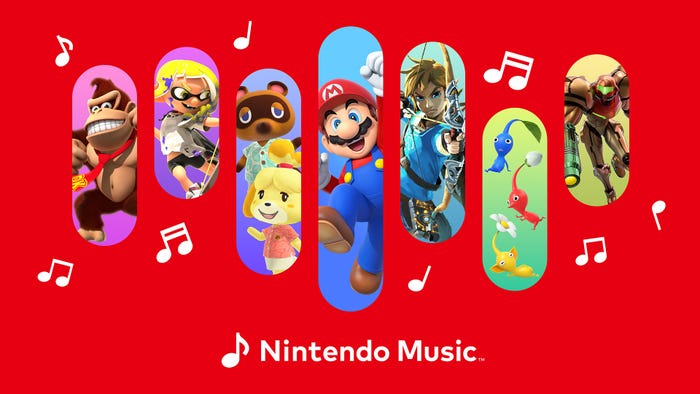Cloud Computing in Video Games
This article is about what cloud computing could mean for video games, the pros and cons of implementing cloud computing, and what has already been accomplishes. The article is more informative, but a lot of great questions for future developers.

The Importance of Cloud Computing
When delving into the world of computer science, a huge topic of discussion and debate has recently unearthed itself: cloud computing. The basis for the idea is to develop virtualization - resources being used 'virtually' or simply, over the Internet, using an application interface of some form. Think of being able to log on to an application such as Steam or Games for Windows Live, and playing games that are graphics- or processing-intensive, like first-person shooters or strategy games, and being able to share those resources through their servers and/or machines without taking a heavy toll on your own. The term 'in the cloud' is now a widely-used phrase amongst the technical community and enthusiasts when referring to the cloud-based architecture. Plenty of leading companies in the industry are and have been a part of this new regime, which includes Microsoft, Amazon, and Google. It is important to realize that video games will be the next medium in this timeline of development into cloud-based computing.
The video game market has been moving toward a similar trend in ways of virtualization, mainly toward the course of content and downloadable games. An easy example is downloadable content from services such as Xbox Live (XBL) or Playstation Network (PSN). These providers are able to provide the interface similar to cloud services; however, the user still has to use their own computational resources while downloading the content to their devices (i.e. the Xbox 360 or PS3), sometimes even through peripherals (i.e. hard drives). In spite of this, however, they are eliminating the need for physical copies of the video game. Microsoft has a service known as Games on Demand, which allows the user to download the game straight to their Xbox 360 hard drive without the need for the original game disk. It is safe to say, there is a reasonable jump into a shared service that mimics that of cloud computing.
What is Already Being Done - Game Streaming
Already, there has been a movement toward cloud computing-like services in video games, known as game streaming. The concept is simply providing the resources through their third-party service and allowing users to access that content via the Internet through a stream, similar to YouTube and movies. However, unlike YouTube, these are fully-licensed video games being streamed to a computer. Gaikai has been the leader in this industry, with a beta currently in progress. With this implementation, the jump to consoles and handhelds is not far away. Sony's PSPGo was one of the first attempts at a strictly, downloadable content service, however, it was still using the idea of using the console's capabilities instead of a third-party resource.
The Benefits for Cloud Computing in Video Games
Seeing what has already been done, whether those will be successes or not, there are still many benefits to the theory of having a cloud-based service for video games. As mentioned earlier, ease-of-access of content has made a huge breakthrough in the gaming industry. One only has to look toward the services mentioned before and the popular coined term DLC (downloadable content). Cloud computing also is very easy to use and implement. All it takes is a simple user interface to allow the user to navigate through the maintained resources (i.e. memory). No downloading software or installation onto your own machine. Through the interface, by a simple click the application will be up and running.
Also, the idea of cloud computing for video games has the potential to cut costs not only for the potential owners, but the users as well, especially if using a utility billing model. How the model is used now is simply 'over paying' for bandwidth in case of a 'spike' in the system or too many users at a given time. This is especially critical during new releases of popular titles. Company's sometimes will only use about ten percent of their server space and bandwidth, keeping the other ninety simply unused until a server spike happens. However, with cloud computing using a utility billing model, the company only pays for the resources it consumes and those savings can then be transferred indirectly to the users who are playing games on those cloud platforms. However, there is also a downfall to overusing this model that can take advantage of the corporation, which will be explained in the next section.
The best of all the advantages to cloud computing is cross-compatibility and equal resource sharing. Think of being able to start up your PC, whether it is a lower-end machine or a hobbyists dream, and then being able to run high-end games, such as Call of Duty or Crisis. No matter what the processing power, graphics capabilities, or memory, it is possible through cloud computing services to be able to run any game at any settings. Plus, upkeep and maintenance will be all run on the same platform, so there is cut time on compatibility testing since it will all run in the same environment.
The Downfalls of Cloud Computing in Video Games
Despite the need for virtualization and cloud computing services, there are still some down sides to implementation. If virtualization were to be perfected, there will be less need for potential hardware, especially with consoles. Imagine, as a consumer, having two choices: get a simple, running PC for as little as $200-300and pay as little as $20-30 for a virtualized copy of a game or pay $15 for a monthly service, or keep buying $50-$60 games to run on your already $400-500 (including necessary proprietary hardware like hard drives) consoles. The smart consumer will choose the latter, especially when it comes to social gamers who do not have the time or money to go out and buy an entire console then is able to provide the funds for the additional games. However, consoles do have proprietary hardware that provides an advantage, such as Microsoft's Kinect or Playstation's Move Controller. Again, though, these come at an additional cost to the consumer, which can lower potential sales.
As mentioned before, even though costs could be cut using cloud-based services, they also have a chance to be raised. If the company opts for a resources-used billing model, it can end up having an indirect impact on the consumer. If the company sees their potential investment gain by having lower server/application cost based on only what they use, they can simply raise the prices of the games or even the subscription service, which can and will turn away potential users.
One of the major problems with cloud computing is exclusivity to those that use Internet connections. It may seem absurd to assume that not everyone has an Internet connection, but it is a huge factor when considering those who do not. Cloud computing requires this constant Internet connection, so it isn't recommended for dial-up users. Consoles provide that to consumers, even though a consumer may never use Internet services. Also, everything that happens to the network can directly affect the user. If the network is being slow, that user will experience that slowdown on his/her machine.
There is a huge disadvantage with data storage in cloud computing. Everything related to data is stored 'in the cloud' and there is no physical way to load or backup data that is stored on cloud servers. Think of playing for hours on end or in an Massively-Multiplayer Online Game and lose your save game. It is incredibly frustrating. Also, sensitive data is at risk (debatably) when being put simply 'up in the cloud.'
Conclusions
Despite cloud computing having its disadvantages, it is still a great service that the gaming industry can take advantage of in some aspects, mainly the PC and social markets. Cloud computing is still in the early stages of development, and it may be perfected in the near future and virtualization will become a large market even for video games. With the new advances like game streaming and downloadable content as well as services like Games on Demand and Gaikai, there is a definite move toward a virtualized environment for video games.
References
General Information
http://en.wikipedia.org/wiki/Cloud_computing
Gaikai - Cloud-Based Gaming
http://articles.cnn.com/2010-06-16/tech/e3.cloud.gaming_1_video-games-playstation-network-electronic-entertainment-expo?_s=PM:TECH
http://gamasutra.com/view/news/29519/Intel_Limelight_Invest_In_Cloud_Gaming_Service_Gaikai.php
http://gamasutra.com/view/news/31584/Gaikai_CloudBased_Games_Service_Enters_Open_Beta_With_11000_Public_Users.php
Read more about:
BlogsAbout the Author
You May Also Like









